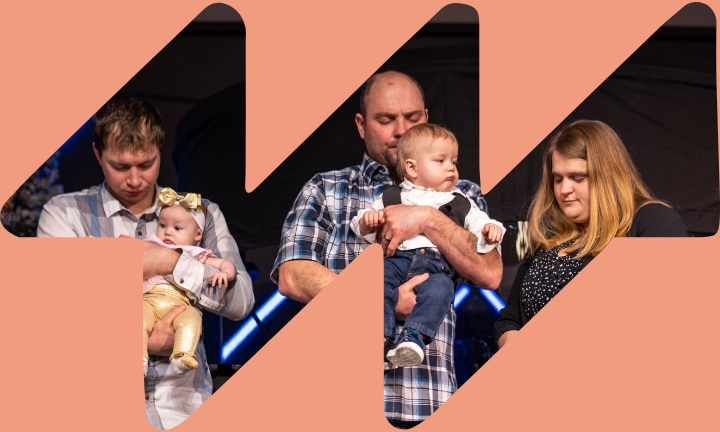We all suffer some rough treatment as we move through life. One of them is betrayal.
When it comes to betrayal, the classic example is Jesus and Judas. Judas always was an outsider among the 12 Apostles. I have wondered how he even became a part of the group. But there he is. He was even the group’s financial advisor; he carried the “bag.” However, I am not one to criticize the choice of Jesus.
I’m not sure how this dastardly deed was hatched in the mind of Judas. How long had it festered there, imagining ways that his thoughts could become actions? However, the day did come when Judas approached the Jewish leaders with an outline of his plans. I can see the Chief Priest as he sits in his chair of leadership, stroking his beard and listening intently.
These Jewish leaders do not need Rome’s help or permission to bring a man in for questioning. After all, they were the keepers of the Divine law of Moses, and Rome had given them authority to practice their faith.
It was a small group that left the Temple grounds late that night. They had recruited a couple of Temple police them give them any authority that they may need. The group was led by none other than Judas. They may not recognize Jesus in the dark of night, so they bring Judas for the sake of secure identification. They had agreed upon a signal from Judas when he recognized Jesus.
What did Judas think as he led this group through the darkened streets of Jerusalem in the middle of the night? The betrayal money was jingling in his pocket, and he already had ideas of how he would spend this money. When a person is close to the act of betrayal, do they think of the consequences of what they are about to do, do questions enter their mind or fear, wondering if they are doing the right things? Without hesitation, Judas identifies Jesus and innocently steps up and says, “Hail Master,” and places a king on the cheek of Jesus.
Was Judas deceived or angry? Why did he do what he did? What was his motivation in the first place that set the wheels in motion? Things like this are not usually spontaneous but require forethought. Benedict Arnold did not accidentally put that note of betrayal to the British hidden in the heel of his boot. It took thought as to how it could be carried out. Arnold was angry because he was bypassed as the General in charge of West Point, and this was his motivation. What was the motivation of Judas? What is anyone’s motivation to betray? It starts as the germ of a thought based on some perceived wrong that says, “I will get even.”
We know how successful this betrayal was. I’m not sure what Judas emotionally felt after he kissed the cheek of Jesus. The guards took Jesus away to the chambers of the high priest, where they attempted to nail the conviction on him so they could take Him to a Roman Court, but what happened to Judas?
Somewhere in the next hours, the reality of what he had just done hit him emotionally. I do not think that journey from the reality of what he did to the emotional impact of what he just did took very long.
Some people suffer the guilt of betrayal in different ways. Some smack their lips in satisfaction, knowing that the hurt and anger that has been harbored in their heart has now been returned to hurt the person of their revenge. Not so for Judas. Sometime in that same night, the coins of betrayal that had been jingling in his pocket became poison in his bosom as he realized what he had just done. But how do you recover from the act of just ripping your knife of hatred up someone’s soft underbelly? You do not go fast food and order a Big Mac with extra fries.
Not so for Judas. He took those coins of silver that he had such a lust for, and he had watched the exchequer carefully count out and hand them over to him. Now they were a rope around his neck. He took the money back to the exchequer and threw them on the counter, and walked out. But as he walked out and walked down the darkened streets of that old city, it still was not enough. It was like the devil himself was chasing him. He could not outrun the guilt that overcame him. He ended up on the outskirts of the City. He took the rope, wrapping one end around his neck and the end tied to the branch of a sycamore tree, and leaped out into the darkness. The jerk at the end of that rope was so intense that not only did it break his neck, but his very bowels spilled out over the ramparts of the city of God.
That’s what betrayal looks like. There is no way to run away from the past.
There are numerous accounts of betrayal recorded in the Bible. Was it not Cain who betrayed his own brother Able? They took a walk in the field together, and Cain clandestinely took his hidden knife and killed his brother. Why would he do that? Merely because his brother’s relationship with God brought more results than his own. It was jealousy that thrust that knife into Able. Did anything bad come of it. God Himself came to Cain, inquiring where his brother was. Cain could care less. But God said, “not so fast”, your brothers blood is crying to me from the ground and God branded Cain with a mark that identified him for what he was, a man who would betray his own brother.
It is very difficult to recover from betrayal, both the one who does the betraying and the one who is betrayed. It marks us, not unlike Cain. It is an inner emotional scar that some carry to their grave. It could be family, or it could be a friend who ripped me open. Some are worse and wound up much deeper.
It is happening currently as we watch our national political scene.
God, through Jesus Christ can help us forgive, but the emotional wound, just like a surgical wound, takes a long-time to heal.



